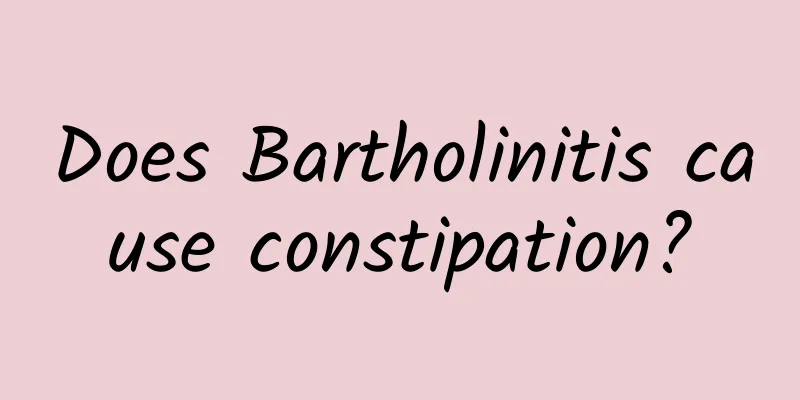What ointment can be used to relieve itching of gynecological vulvar leukoplakia? What medicine can be used to relieve itching of gynecological vulvar leukoplakia?

|
Gynecological vulvar leukoplakia is a common gynecological disease that brings great discomfort and distress to patients. In addition to the many causes of vulvar leukoplakia, one of the most common symptoms of patients is itching. So, what ointment can be used to relieve itching of gynecological vulvar leukoplakia? Here I will introduce some commonly used ointments for treating vulvar leukoplakia and relieving itching. 1. Aminophylline cream: Aminophylline is a drug with anti-inflammatory and antipruritic effects. Using aminophylline cream can effectively relieve the itching caused by gynecological vulvar leukoplakia. Patients can use this ointment under the guidance of a doctor, applying it 2-3 times a day, each time with an appropriate amount. 2. Atropine sulfide ointment: Atropine sulfide is also a drug with antipruritic and anti-inflammatory effects. This ointment can relieve the itching caused by gynecological vulvar leukoplakia and reduce the patient's discomfort. Patients can apply it several times a day according to the doctor's advice, with an appropriate amount each time. 3. Bayberry lotion: Bayberry lotion is a traditional Chinese medicine lotion that contains bayberry, phellodendron, sophora flavescens and other herbs with anti-inflammatory and antibacterial effects. Bayberry lotion can effectively relieve the itching symptoms caused by gynecological vulvar leukoplakia and play an antipruritic role. Patients can use the lotion to wash the vulva several times a day. 4. Hydrocortisone ointment: Hydrocortisone is a glucocorticoid that can effectively relieve inflammation and itching symptoms. Using hydrocortisone ointment can reduce the discomfort and itching caused by gynecological vulvar leukoplakia. When using hydrocortisone ointment, patients should follow the doctor's advice and avoid overuse. In short, gynecological vulvar leukoplakia is a common gynecological disease, and itching is one of its common symptoms. When treating vulvar leukoplakia, it is very important to choose an appropriate ointment to relieve the itching. The ointments listed above are just a few of the commonly used drugs. The specific choice should be determined according to the doctor's guidance and the individual situation of the patient. In addition, when using the ointment, patients should follow the doctor's advice, avoid excessive use of drugs, and reduce unnecessary side effects. If the symptoms are not relieved or there are other questions, patients should consult a professional doctor in time to get better treatment results. |
Recommend
How to operate on hydatidiform mole
Under normal circumstances, hydatidiform mole can...
Symptoms of incomplete miscarriage after abortion
Nowadays, people live too openly. In order to get...
Can microwave treatment really eradicate cervical erosion?
Can microwave treatment really eradicate cervical...
Current strategies for preventing cervical precancerous lesions
There are no obvious symptoms of cervical precanc...
What are the early symptoms of cervical erosion in life?
What are the early symptoms of cervical erosion i...
Tip: Fungal vaginitis is more likely to occur in summer
Summer is here, and with it comes the emergence o...
Self-care measures for patients with congenital absence of vagina
In addition to receiving a formal diagnosis, the ...
Which is less harmful, surgical abortion or medical abortion? Let's find out
Generally speaking, many women who have an unexpe...
What are the dangers of multiple uterine fibroids? Will multiple uterine fibroids worsen the disease?
Multiple uterine fibroids grow very fast, or afte...
What is recurrent miscarriage? What doctors say
Many women have a very high chance of miscarriage...
Red beans are diuretic and help lose weight! Nutritionist Zhao Hanying: Recommend red bean and coix seed soup to get rid of sweet food-related edema
Most women love sweets and always have a glass of...
Is it necessary to take confinement after a miscarriage? Listen to the doctor
Miscarriage is a very painful thing for women, bu...
What is the best thing to eat for dinner with uterine fibroids? Breakfast recipes for patients with uterine fibroids
What is the best thing to eat for dinner with ute...
Small details in daily life can help you regulate irregular menstruation
Normal women's menstruation is regular. Once ...
How long does it take for endometrial thickening to be completely cured?
In daily life, women need to pay attention to the...









